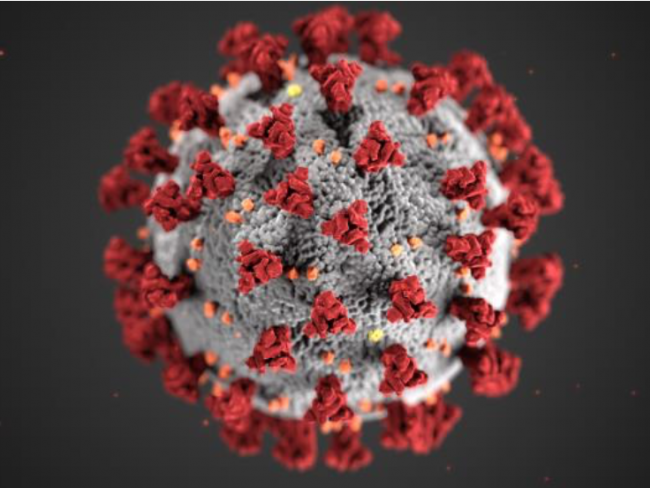22 November 2020

The coronavirus behind the epidemic. Photo CDC/ Alissa Eckert, MSMI; Dan Higgins, MAMS.
This article was updated on 23 November following the announcement from Oxford of new interim trial data.
Nothing illustrates the potential of collective and people-led organisation like the response of British workers to the Covid-19 pandemic. Faced with a threat unprecedented in recent history, Britain’s workers got on with the job. The results are before us now, in particular with imminent success on the vaccines front.
We have come a long way since 2018, when business secretary Greg Clark’s feeble announcement of inadequate funding at the launch of the Vaccines Manufacturing and Innovation Centre (VMIC) set the tone. Now tens of millions of doses of the Oxford University/AstraZeneca chimpanzee virus-based vaccine will be produced by Oxford Biomedica in a “virtual” partnership with the now far better funded VMIC.
Whatever the eventual fate of the Oxford vaccine (full trial results have not yet been analysed and published, although a statment on 23 November announced up to 90 per cent efficiency) the achievements so far are immense. Almost at a stroke, large-scale vaccine manufacturing has been restored to Britain. It shows what can be done: Britain can be rebuilt. All that is needed is the will and the ambition – and for the working class to take control.
Vaccine development is not the only success area. Take, as one example out of many, the research in a paper published in July into dexamethasone, a widely used and relatively cheap anti-inflammatory drug. At just £5 per treatment, it was shown by British researchers to reduce death in Covid-19 patients on ventilators by up to a third – a life saver on an epic scale.
‘Researchers – workers – took responsibility’
As the notes in the Appendix of the published paper show, this was an “investigator-initiated trial”. No big funder, no government department, no company had the bright idea of starting it. Researchers themselves began it, rapidly finding time and money from a number of sources (which is where the government agencies and the other funders came in). Researchers – workers – took responsibility.
No fewer than 176 hospitals – all NHS – were involved in the trial, the length and breadth of the country: from Cardiff to Glasgow, from the Isle of Wight to the Western Isles. The coordinated, national initiative makes a mockery of the petty regionalism that has marred the public health response to the crisis.
NHS
It’s no accident that this research was carried out here, in Britain. Where else in the world would you have had such a massive study carried out in record time and yielding such powerful results? But then again, where else in the (capitalist) world do you have an NHS?
Early on in the crisis, when Britain was desperately short of testing facilities and PPE, many scientists not researching Covid-19 organised themselves, with no urging from above, to provide backup support.
These included the Crick Institute in London, the largest single workplace of biomedical researchers in Europe, where the labs were turned over for testing. In another example, chemists at Imperial College London started making their own hand sanitiser for distribution locally.
And now, according to government predictions, Britain is on course to make 70 per cent of its PPE here from the start of December. It’s a far cry from the farcical goings on that saw the RAF fly in a planeload of PPE from Turkey, only for many of the gowns to be ditched as being of too low quality.
No return
But the working class must do more than take responsibility locally, in a crisis, over limited areas. Once this struggle against the virus is over, there must be no return to sit-back-and-moan approach that has characterised so much of the working-class response to the failing system of capitalism.
On 1 January Britain finally leaves the clutches of the EU’s regulatory systems. Good riddance. Independence beckons. Now workers will have to harness their collective experience and knowledge and apply their collective energy to the task of taking control of the direction of the country. There should be no self-doubt: if Covid-19 has shown anything, it is that workers truly can change the world.
